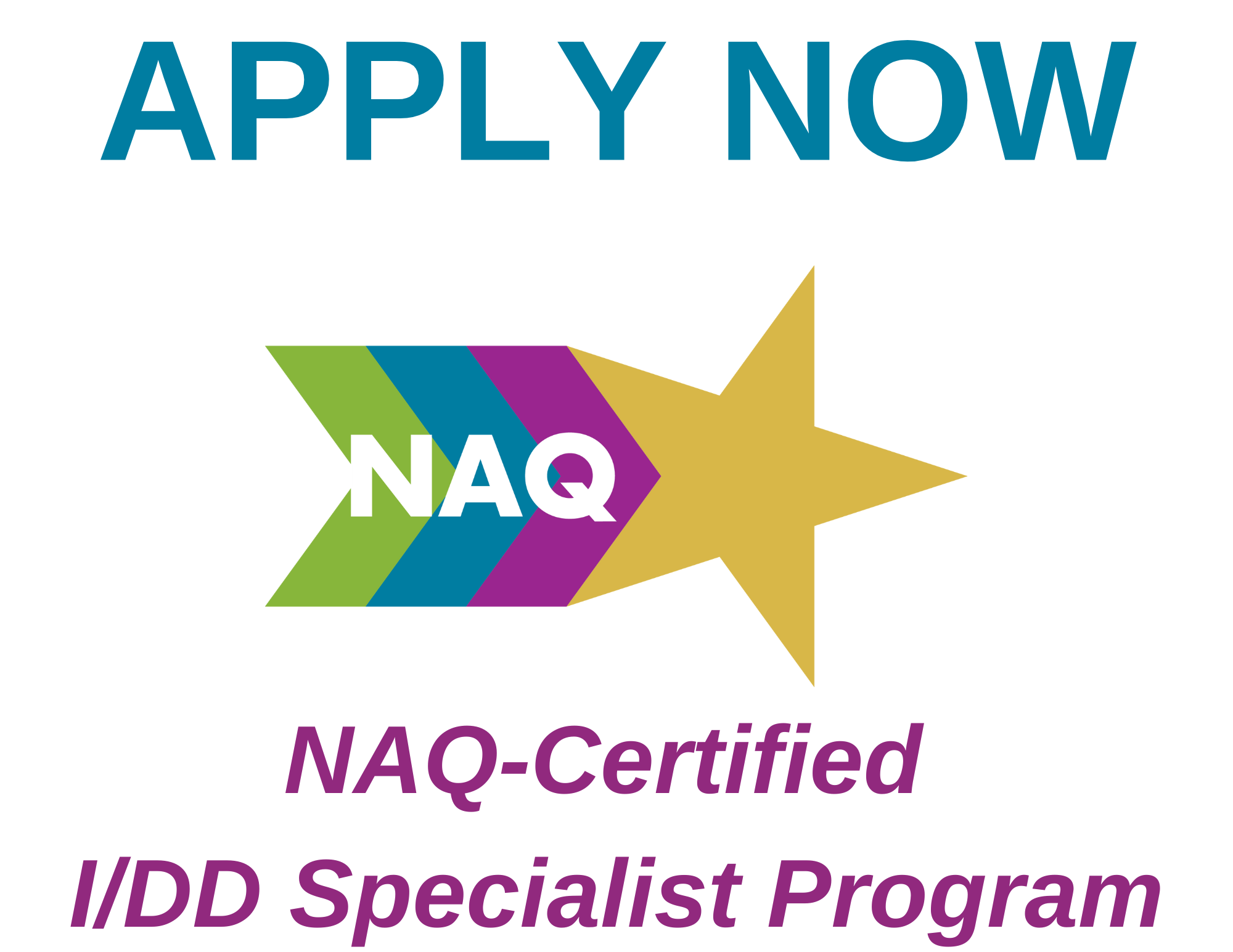Past Webinars:

Working with Individuals who have Intellectual or Developmental Disabilities
and Histories of High Risk Behaviors
Session 1: Providing Person Centered support and supervision when working with individuals who have histories of high risk behaviors.
Date: October 25, 2022
Time: 1PM - 3PM Central Time
Description: This training session will focus on the importance of creating and maintaining safe, supportive, and person centered environments when working with individuals who have histories of high risk behaviors such as severe aggression, sexual offending or fire setting. In order to be effective in helping these individuals transition to fuller, richer lives, several special skills are needed including a proper mindset, proficiency in the 12 essential skills of supervision, and a thorough understanding of the individuals being supported. The challenge is to create an environment that is both person centered and also safe for the person being supported, other individuals in the program, the staff supporting the individual and the public. This training will focus on the skills and abilities needed to assist these individuals on their journey towards better, more fulfilling lives.
Session 2: When It's Time To Fade
Date: November 8, 2022
Time: 1PM - 3PM Central Time
Description: This training session will focus on the very important topic of how to safely and effectively reduce restrictions and increases opportunities for individuals with Intellectual or Developmental Disabilities (I/DD) who have histories of high risk behaviors. Often, ls are called upon to provide excellent support and supervision, in all types of settings, for individuals with I/DD who have histories of serious maladaptive behaviors such as severe aggression, sexual offending or fire setting. These individuals are frequently subject to certain restrictions, 1-to-1 or enhanced supervision or limitations on opportunities. Enhanced supervision is very expensive and can be confining for the individual, and we certainly do not want to subject individuals to restrictions any longer than is necessary. The question then becomes, “How do we fade restrictions, reduce enhanced supervision or restore limits on opportunities while at the same time maintaining our commitment to the safety of individuals, staff and the public. This training will examine the issues involved in these decisions and propose a methodology for developing and implementing fading plans that are both safe and effective. The importance of defining and gathering data to inform our decisions on when and how much to fade will be reviewed.
Session 3: Introduction to Person Centered Dynamic Risk Manageability
Date: November 22, 2022
Time: 1PM - 3PM Central Time
Description: This training will introduce a system of Person Centered Dynamic Risk Manageability through which we can establish and maintain an effective balance between stable and acute dynamic risk factor and the services, supports and supervision provided to individuals with histories of high risk behaviors such as severe aggression, sexual offending and fire setting. Utilizing evidence based practices and comprehensive assessments of static and dynamic risk, this system employs person centered thinking to establish and maintain an array of services, supports and treatment that effectively and therapeutically manages the dynamic risks posed by these challenging individuals. Since dynamic risks are always changing, the system provides a mechanism to adjust the level, intensity and therapeutic nature of the services and supports being provided in order to establish and maintain a proactive balance between an individual’s level of risk and the services, supports and supervision we are providing. Utilizing the concept of a Circle of Support to establish a Circle of Support and Accountability with the individuals at the center, encourages the active cooperation of the individual in their individual plan of person centered risk manageability.
Speaker Bio: John W. Finn received a Bachelor of Science Degree in special education and a Master of Science degree in Rehabilitation Counseling from Syracuse University. He has worked in several capacities in various human services settings including direct care, community residence manager, and program coordinator. For 32 years he served as the Director of Forensic Services for the New York State Office of Mental Retardation and Developmental Disabilities, now the Office for People with Developmental Disabilities. For several years he was the Director of a free standing, secure, intensive residential treatment facility, certified as an ICF/MR. Mr. Finn retired from state service in 2010 and now serves as President of Forensic Specialists, offering full service consultations, expert evaluations and specialized training. Most recently Mr. Finn has pioneered the development and application of Person Centered Dynamic Risk Manageability, a comprehensive approach to supporting high risk individuals in community settings.
Mr. Finn is a clinical member of the Association of Treatment of Sexual Abusers and a member and past President of the Association of Professional Developmental Disabilities Administrators. He has provided expert testimony, consultation and training to all 50 states, the President's Committee for People with Intellectual Disabilities, and The Centers for Medicare and Medicaid Services on topics including the assessment and treatment of people with developmental disabilities who have histories of high risk behaviors such as sexual offending, fire setting and severe aggression. He has assisted several states in designing systems for the individualized intensive care, treatment and support of individual with developmental disabilities who have significant involvements in the criminal justice system.
CEUs: We are pleased to inform you that 6 continuing education hours (2 per session) are approved for the above training event for the following licensed professionals:
• Licensed Clinical Professional Counselor
• Licensed Clinical Social Worker
• Licensed Nursing Home Administrator
• Licensed Occupational Therapist and Occupational Therapy Assistant
• Licensed Physical Therapist and Physical Therapy Assistant
• Licensed Professional Counselor
• Licensed Social Worker
• Registered Nurse, Licensed Practical Nurse & Advanced Practice Nurse
Qualified Intellectual Disabilities Professionals (QIDPs) may apply the same hours of continuing education credits earned from this conference toward their twelve-hour annual continuing education requirement.


Medication Updates 2020 Part 1 & 2
Date: This is a two-part webinar was held on December 9, 2020 from 1PM – 2:30PM Central Time and on December 16, 2020 from 1PM – 2:30PM Central Time.
Session Description (Part 1): This session reviews the process of getting a drug to market by a pharmaceutical company and the requirements imposed by the FDA for such. It continues with several disease states and the medications developed in the last year to address some of the ongoing needs of patients, especially individuals with I/DD. The disease states and new drugs discussed are Parkinson’s Disease, Alzheimer’s Disease and Depression.
Session Description (Part 2): This session continues with a discussion of disease states affecting the individual with I/DD and new drugs developed over the past year. The following topics are reviewed: Insomnia, Schizophrenia, Hypertension and Seizure Disorder. Lastly what is on the horizon for development is reviewed.
Speaker Bio: Nanette is a pharmacist educator who has done training, education and speaking for physicians, nurses and other health professionals for many years. She focuses on clinical health and medication education in the area of intellectual and developmental disabilities.
Medication management, drug safety, treatment assessments, new drugs on the market and disease states are some of the many topics she has discussed for organizations all over the country. She has produced a national newsletter reaching thousands of health professionals and is widely sought after to present health education webinars on a variety of subjects impacting those individuals with intellectual and developmental disabilities.
She is one of the clinical resources for a national pharmacy, Tarrytown Expocare,specializing in providing medications and medication management to facilities across the United States who care for individuals with I/DD. She is skilled at facilitating health promotion and disease prevention by utilizing public talks and training seminars to increase understanding of medication usage, dosing, potential side effects and drug interactions in this disease state for nursing, physician and health care workers. Nanette has spoken for drug companies for the past 16 years as a professional
medication educational speaker on a variety of subjects including seizure disorder, psychotropic medications, Alzheimer’s Disease, respiratory illnesses and osteoporosis as a few examples.
She has been nationally recognized by a number of organizations including the National Developmental Disabilities Nursing Association and the American Association of Intellectual and Developmental Disabilities by winning awards for her speaking commitments.
CEUs: We are pleased to inform you that 1.5 continuing education hour(s) (CEs) are approved for the following licensed professionals: • Licensed Clinical Professional Counselor • Licensed Clinical Social Worker • Licensed Nursing Home Administrator • Licensed Professional Counselor • Licensed Social Worker • Registered Nurse, Licensed Practical Nurse & Advanced Practice Nurse Qualified Intellectual Disabilities Professionals. QIDPs may apply the same hours of continuing education units earned from this conference toward their twelve hour annual continuing education requirement.
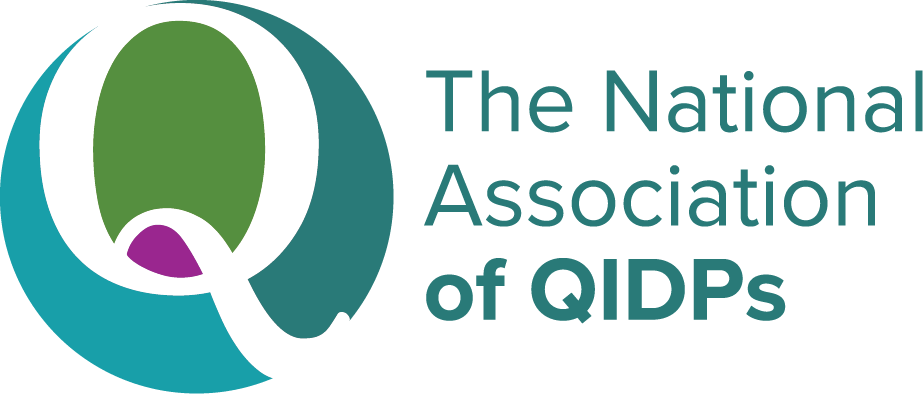
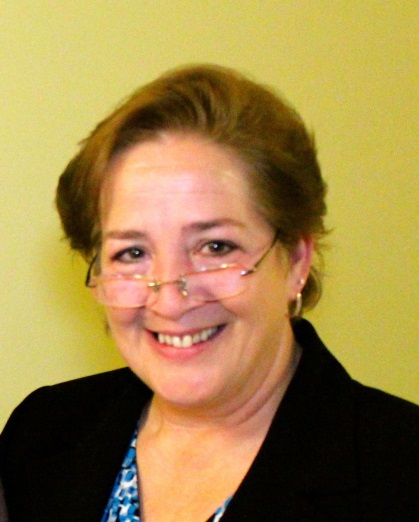
Assisting People to Make Better Decisions: Strategies for Success
Date: November 18, 2020 from 11AM – 12PM Central Time
Session Description: Like all of us, people with disabilities frequently need help with making decision in life. While supported decision-making (SDM) is becoming more recognized as an option, guardianship is still the most common option considered and used in practice. Supporters are often not clear on the difference between different support options or how to use the principles of SDM in the day to day lives of people with disabilities. This session will clarify critical information about decision-making support options and explore practical strategies for working directly with people who have disabilities to develop the skills and experience needed for better decision-making. The presenter will identify and explore key concepts that can be used as practical guidance when assisting people with disabilities.
Learning objectives: Participants will
· Describe the different approaches to decision making support.
· List potential benefits and concerns for each type of support
· State the most important elements of informed decision-making
· Explain the essential responsibilities for providing support to people with disabilities
Speaker Bio: Tina M Campanella has been the Director and Chief Executive Officer of Quality Trust for Individuals with Disabilities, an independent advocacy and monitoring organization in Washington DC, since its inception in 2002. She previously worked with the Council on Quality and Leadership (CQL) prior to assuming leadership at Quality Trust. She has over 40 years of experience working on behalf of children and adults with disabilities in many different capacities. She is acknowledged as an exceptional thinker and leader with expertise in program development, person-centered approaches and service quality management. Most recently she has also led the creation of the National Resource Center on Supported Decision-Making and has travelled the country promoting dialogue on improving decision-making support for people with developmental disabilities.
CEUs: We are pleased to inform you that 1 continuing education hour(s) (CEs) are approved for the above training event(s) for the following licensed professionals: • Licensed Clinical Professional Counselor • Licensed Clinical Social Worker • Licensed Nursing Home Administrator • Licensed Professional Counselor • Licensed Social Worker • Registered Nurse, Licensed Practical Nurse & Advanced Practice Nurse. Qualified Intellectual Disabilities Professionals (QIDPs) may apply the same hours of continuing education units earned from this conference toward their twelve hour annual continuing education requirement.

 PERMA, The Other 5 Letter Acronym: An Introduction to Positive Psychology PERMA, The Other 5 Letter Acronym: An Introduction to Positive PsychologyDate: November 4, 2020 from 1PM - 2:30PM Central Time
Session Description: The world is full of sadness, loneliness and anxiety related to COVID. This presentation will focus on a much brighter topic, Positive Psychology. The Positive Psychology movement was founded by Martin Seligman in 1998. In contrast with mainstream psychology which has been dominated with a focus on mental illness, maladaptive behavior, and negative thought patterns, Positive Psychology is focused on “the good life” and the factors that promote well-being. The session will focus on key domains that are relevant to well-being as identified by Seligman in his 2011 book, Flourish. These areas include: Positive Emotion, Engagement, Meaning, Relationships, and Accomplishment (Perma). Contemporary researchers have also emphasized the importance of lifestyle habits related to physical health. The session will provide an overview of Positive Psychology and will provide examples of Positive Psychology Interventions (PPIs) that may be useful to both staff members and persons with intellectual and developmental disabilities.
Speaker Bio: Thane Dykstra is the President and CEO of Trinity Services, Inc. He joined the organization in 1995 and served as Clinical Director and Director of Trinity’s Behavioral Health program.
Thane has written numerous professional publications related to his field of study, and he has presented extensively at national conferences and invited trainings. His current professional interests include contextual-behavioral therapies such as Dialectical Behavior Therapy (DBT), Functional Analytic Psychotherapy (FAP), and Acceptance and Commitment Therapy (ACT). He is especially interested in applying these models in work with persons who exhibit challenging behavior. Thane’s interests also include the assessment of risk for persons with intellectual disabilities. Most recently, Thane has been involved in integrating Positive Psychology into person centered planning and recently co-authored a book with Art Dykstra entitled: A New Plan – Using Positive Psychology to Renew the Promise of Person Centered Planning.
Thane holds a bachelor's degree from Valparaiso University and a doctorate in Clinical Psychology from the University of Nevada, Reno. In addition, he completed a pre-doctoral internship at Brown University in Providence, Rhode Island. While at Brown, he served as an assistant project coordinator at the university's Center for Alcohol and Addictions Studies.
Within Illinois state agencies, Thane has served on steering committees and work groups for the Department of Human Services (DHS)–both the Division of Mental Health and the Division of Developmental Disabilities–and the Department of Children and Family Services. He was appointed by the Governor to the state’s Quality Care Board, an advisory committee for the DHS Office of the Inspector General. Thane is a past president of the Illinois Association for Behavior Analysis.
Thane lives in Chicago's south suburbs. He enjoys spending time with his family, camping, hiking, geocaching, fishing and disc golf. Thane was formerly an avid runner and completed several marathons.
CEUs: We are pleased to inform you that 1.5 continuing education hour(s) (CEs) are approved for the above training event for the following licensed professionals: • Licensed Clinical Professional Counselor • Licensed Clinical Social Worker • Licensed Nursing Home Administrator • Licensed Professional Counselor • Licensed Social Worker • Registered Nurse, and Licensed Practical Nurse & Advanced Practice Nurse. Qualified Intellectual Disabilities Professionals (QIDPs) may apply the same hours of continuing education units earned from this conference toward their twelve hour annual continuing education requirement.

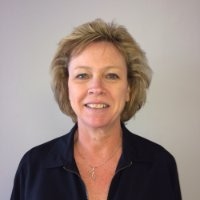
What’s Next for I/DD Service Delivery and Payment Models
Date: September 23, 2020 from 1PM - 3PM Central Time
Session Description: This session will provide an overview of efforts to prepare I/DD agencies to understand and adapt to a landscape that includes non-state payers and is outside of the traditional fee for service (FFS) reimbursement model. States are increasingly looking to alternate payment and management structures for HCBS services, including I/DD services. I/DD service providers are often unfamiliar with the culture, values, language and expectations of non-state payers. Even while state systems remain in a FFS structure for I/DD services, agencies need to be actively engaged in learning about essential competencies that will be necessary to continue to provide their mission-based services in a new landscape and taking steps to prepare their organizations to continue to grow and thrive. This session will share strategies for shifting I/DD agency attitudes from resistance to new payer models to seeking to become informed and educated about them so that they can be as impactful and influential as possible in shaping the future of their state’s I/DD system. We’ll discuss how recent societal trends have impacted I/DD service delivery and what possible long term effects may shape the future for I/DD organizations.
Key Themes
- Emerging payer, service and business models in the I/DD system
- Readying I/DD provider organizations to survive and thrive in alternate payer systems
- The impact of COVID19 on I/DD organizations, service delivery and plans for the future
Speaker Bio: Kathy Carmody is the CEO of the Institute on Public Policy for People with Disabilities, Illinois’ largest association exclusively devoted to I/DD community provider organizations. (Institute)
Kathy has over 35 years of experience in the Illinois and national I/DD arena, including leading research, demonstration and training projects which substantially improved the nature and quality of services to people with intellectual and developmental disabilities. Kathy has also held direct support, clinical and executive management roles within community agencies. At the Institute, Kathy is involved in a wide array of policy and practice issues affecting people with I/DD and serves on and leads multiple committees and task forces impacting the I/DD service system.
Kathy co-chairs the ANCOR Alternate Payment Model (APM) workgroup (ANCOR Report), co-chairs the CQL/Mosaic/Institute national SME team that authored Building the Framework for I/DD Quality Measurement (Building the Framework) and led the Illinois state team in the Business Development Learning Collaborative (BDLC) as part of the NASUAD Business Acumen Center (HCBS Business Acumen Center).
Kathy is a frequent presenter at the state and national level on an array of topics impacting the I/DD service system, including quality metrics, alternate payer models, preparing community agencies for success in a changing landscape, national trends in I/DD services and person centered planning and practices.
Kathy has a graduate degree in Social Service Administration and Policy from the University of Chicago and is a graduate of the National Leadership Consortium on Developmental Disabilities at the University of Delaware.

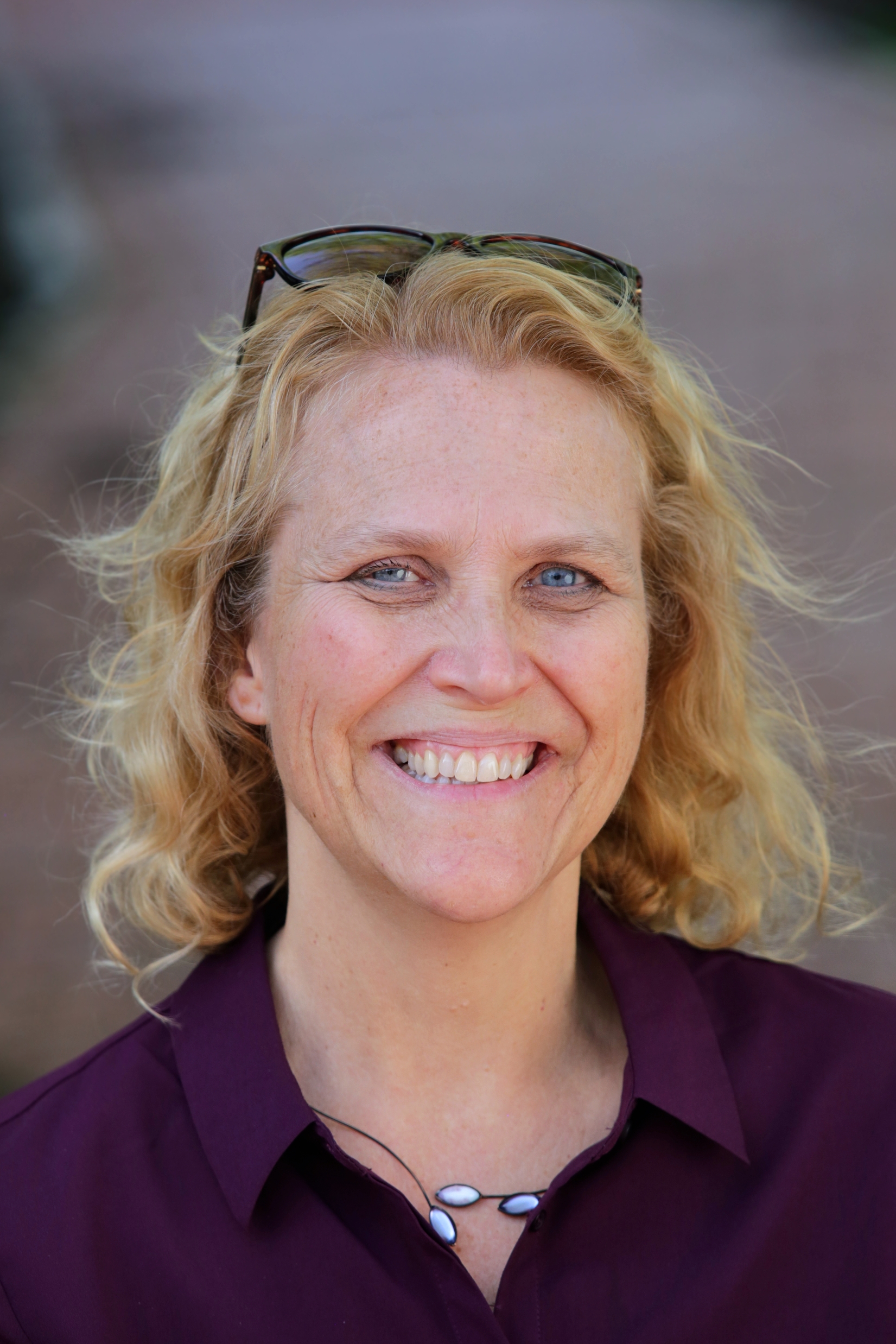
Promoting Healthy Relationships among People with ID/DD
Date: This is a two part webinar that will be held on July 29, 2020 from 1PM – 3PM Central Time & August 5, 2020 from 1PM - 3PM Central Time.
Session Description: As social creatures, it is natural for us to seek connections with others and to develop many different types of relationships including sexual and romantic relationships. This is true for all people - including the people you support who have intellectual and/or developmental disabilities. As a disability professional, one of your roles is to help the people you support develop the skills needed to establish healthy relationships - those that foster health and well-being. In this two part webinar, participants will:
- Define sexuality and sexual self-advocacy.
- Gain knowledge about sexuality and specific issues for people with developmental disabilities including human sexual development, healthy v. unhealthy relationships, and consent.
- Explore our own values and attitudes regarding sexuality and strategies for managing our values.
- Explore ways to communicate about sexuality with people with developmental disabilities and their parents/guardians.
Speaker Bio: Katherine McLaughlin, M.Ed., AASECT Certified Sexuality Educator, is the Founder, CEO and Lead Trainer for Elevatus Training. As a national expert on sexuality and ID/DD she trains professionals, and parents as well as individuals to become sexual self-advocates, and peer sexuality educators. She is the author of Sexuality Education for People with Developmental Disabilities curriculum. She has developed two online courses: Developmental Disability and Sexuality 101 for professionals and Talking to Your Kids: Developmental Disabilities and Sexuality for parents, and a 3-Day certificate training: Becoming a Sexuality Educator and Trainer. She has spent her 25+ year career committed to elevating the status of all people, which is why the name of her growing company is Elevatus Training.
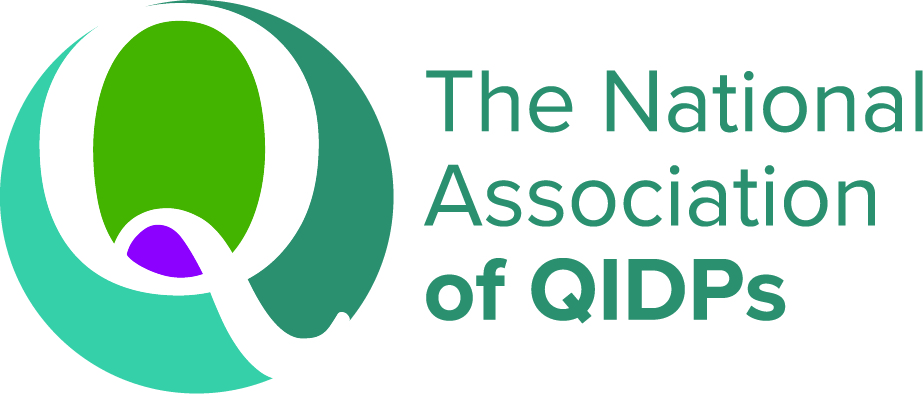

Person Centered Planning in Difficult Times
Date: July 14, 2020 from 2PM - 3PM
Session Description: NAQ is pleased to host Art Dykstra, a long-time leader in the field of developmental disabilities and recent co-author of the book A New Plan: Using Positive Psychology to Renew the Promise of Person-Centered Planning. Connie Melvin, Executive Director of NAQ, will be interviewing and discussing with Art such issues as controlling the negativity instinct in times of difficulty, the importance of a positive culture, as well as the latest in developments in planning with persons who have disabilities—including the five essential components of person-centered planning. Join us in thinking more about how we can help those we support build and live their best life possible.
Speaker Bio: Art Dykstra currently serves as the Director of the Trinity Foundation and also as the CEO of Cherry Hill Consulting Group. The consulting group assists organizations in leadership development, cultural improvement, and person-centered planning. Art is the author of Outcome Management, You Won’t Believe This: Understanding Gossip, Creating a Positive Organizational Culture. and, most recently, A New Plan: Using Positive Psychology to Renew the Promise of Person-Centered Planning. He is a frequent conference speaker and a fellow in AAIDD.

In January/February 2020, ANCOR and NAQ joined forces to offer a 3-part webinar series titled Relationships: The Key for Establishing Exceptional Supports. We all know that it is critical to establish strong positive relationships with the people we support. It’s also essential for us to develop positive working relationships with the people who comprise their core circle of support. In this webinar series, we explored best practices for developing relationships with guardians, siblings, and staff in order to help the people we serve to live full and meaningful lives.

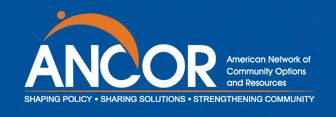
|












